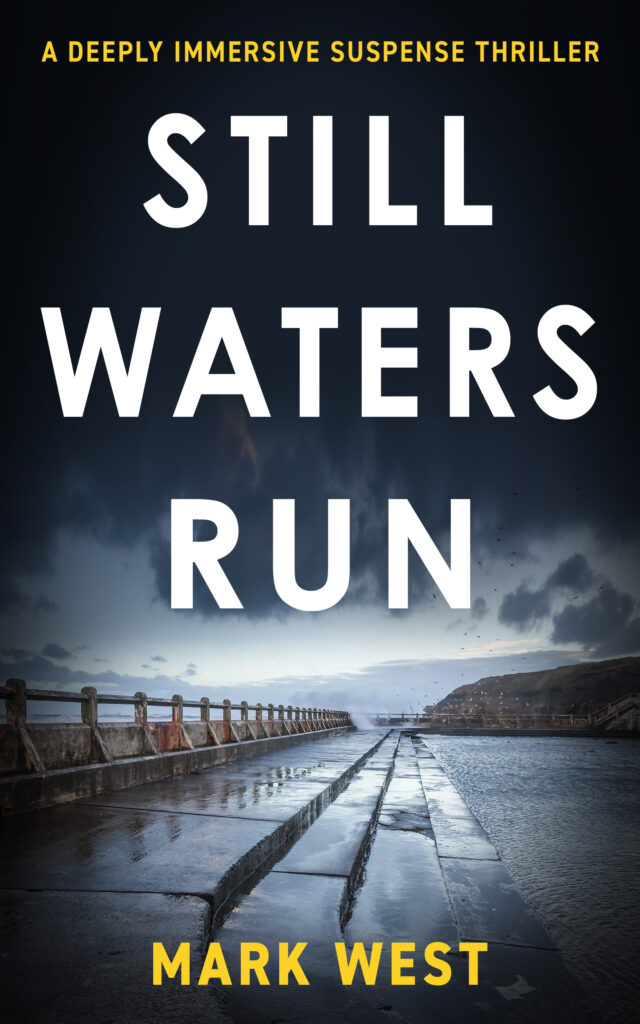

1. Have you ever tried to write a novel for a genre you rarely or never read?
No and, to be honest, I think it would show if I tried to do it. Whatever genre you read has its own rules and regulations, even if they are routinely broken or bent, because that’s what gives you the structure. You don’t have to follow every rule but you need to comply with enough because otherwise the piece won’t work – imagine a crime novel without a crime, a thriller without any thrills, a romance without a love story. Speaking of love stories reminds me of my friend Sue Moorcroft, who writes brilliant contemporary woman’s fiction (you really should seek her out). She told me a story that people always think they can write a Mills & Boon novel – girl meets boy (he’ll be a doctor or a pilot), there are some ups and downs and then she marries him – and send in material based on their perceptions. In reality, M&B is a business and has very strict guidelines and knows exactly what it wants – the people who write for it successfully fully understand the line and the genre and the rules.
And let’s be honest, why would you write a novel for a genre you rarely or never read unless it was for purely mercenary purposes (ie, all the erotica tat that came out after Fifty Shades)?
2. How do you process and deal with negative book reviews?
I’d love to be really flippant and say “they spur me on” or “I never read them” but I’d be lying. They hurt – but I only let them sting for a little while. When someone has come back with a negative review or a low rating, it does knock me but by the same token I respond well to favourable reviews so if you accept one you have to accept the other. For DON’T GO BACK, some people said they loved the dual timeline, some found it difficult to follow and so I decided that rather than let the negatives get to me, I had to assume I’d got it right – if half the people liked it and half of them didn’t, I hit in the middle. There’s also the fact that some negative reviews are from people who just like posting them, it’s a way for them to get their thrills, so it doesn’t really mean a great deal.
3. How do you use social media as an author?
Probably not as thoroughly as I should, but I have the usual suspects lined up – a blog, Facebook, Twitter and Instagram. Now, thanks to the assistance of my teenaged son, I’m making very slight inroads into TikTok but I don’t profess to understand it, particularly, or even spend much time on it. And that’s partly my issue with social media – writing requires time and since I work and have a family, my spare time is at a premium and it’s all too easy to lose yourself in posts and tweets and memes and whatever else. So I try to temper how long I spend on it, meaning I don’t really have the time or inclination to discover new media. The downside to this, of course, is that in today’s world, we need to be a presence on social media to push our work. It’s hard.
4. How long did it take you to write this book?
I started writing this (having spent a month or more planning it) in November 2021, a month or so after signing my deal with The Book Folks. It wouldn’t normally have taken so long to write but I lost my dad in February, caught covid later in the year and the first three novels came out (and had to be edited and revised), which all pulled me away from the story. I’d prefer to have the planning and first draft done within six months but in order to do that I’ve really got to work on my over-writing…
5. How many books have you written? Which is your favorite?
I have just had my fourth thriller novel published with The Book Folks – it’s a psychological thriller intertwined with a coming-of-age tale and set in 1985 – called STILL WATERS RUN and, at the moment, it’s my favourite. I’ve found that once you’ve gone through four or five or more drafts of a novel, you’re heartily sick of it and think it’s the worse thing ever written. Then, when it comes due for publication, you’re working on the next and you’ve kind of forgotten the pain and so the last book feels really great. And that’s definitely where I am at the moment. So if anyone were to ask, I’d advise them to pick up STILL WATERS RUN and then DON’T GO BACK (which was the novel I finished before I started SWR). Over my whole writing life, including the horror period, I have a very soft spot for my novella THE MILL, which is about grief and coughing ghosts.
6. What advice would you give to a writer working on their first book?
Keep going. It seems a rather odd thing to say, I realise, but the key thing is to get to the end. When you start writing the book you’ll be full of enthusiasm and think it’s the greatest thing ever (as you should). But somewhere around the middle you’ll get bogged down and begin to think it’s the worst thing ever (and this happens to everyone) and the temptation to put it aside for that great, shiny new idea (which is surely the greatest thing ever!) will be almost overwhelming. But try to ignore that and keep going. A first draft is meant to be haphazard and overlong and painful and not quite what you wanted, because that’s why we have second drafts. So if you start something and believe in it, keep going.
7. What do the words “writer’s block” mean to you?
They strike fear into my heart! Wikipedia lists writer’s block as “a condition, primarily associated with writing, in which an author is either unable to produce new work or experiences a creative slowdown”. I’ve been ‘backed up’ a few times (it’s usually because I’m heading off on the wrong tangent and my subconscious is smart enough to realise even if it’s going to take the rest of me a day or two to catch up) but only properly blocked once and it was horrible.
I was taking my professional qualifications at night school, which took up a lot of my time anyway so I was only getting the smallest windows of opportunity to write and then I lost my sister. The writing was the first thing to go and it never really recovered because we had Dude eighteen months later and by then I realised something really quite serious was going on. I could think of ideas, I could make notes but I couldn’t actually write a story. I was starting to despair, actually and then one day I was chatting with my friend Gary McMahon and mentioned my predicament and he said he wanted me to write a story for an anthology he was editing. I didn’t want to let him down so I decided to shake myself out of it and realised that what was holding me back was the grief so I decide to write it out. THE MILL was the resulting story and although I changed a LOT of details, I used a lot of my own feelings in the piece and it was very cathartic. People still write to me about the novella and I still love it, though it’s quite a difficult re-read for me.
Years later, Gary told me the anthology didn’t exist when he first mentioned it but then, after he saw the positive effect it’d had on me, he put one together. WE FADE TO GREY was published in 2008 by Pendragon Press and was nominated for a British Fantasy Award. I will forever be grateful to him!
8. What risks have you taken with your writing that have paid off?
Moving into thrillers. I’ve been publishing in the horror small press since 1999 and thoroughly enjoyed myself but it was a limited market (to say the least) and I found my more successful pieces (my novella DRIVE was nominated for a British Fantasy Award) weren’t horror at all but dark thrillers. So the jump wasn’t huge one but it did effectively mean that although I would be taking some constant readers with me, I’d be jumping into an arena where nobody knew who I was. But what I hadn’t counted on was that a lot of people (and I mean a lot of people) don’t read horror at all, so family and friends who were aware that I wrote were more willing to look at my thrillers. DON’T GO BACK was published by The Book Folks who did a good job getting my name out there and I was thrilled with the response. So yes, I took a risk and it paid off.
9. What would you say to an author who wanted to design their own cover?
Be sure you know what you’re doing. Whatever anyone says, the cover is a grabber – if you see something that intrigues you, you’ll look further at it and with the likes of Amazon and the various ebook areas, that thumbnail image needs to be bold enough to stand out. One pitfall I’ve seen a lot of in the past is when people use drawings or paintings they (or friends) have done and the quality is, how should I put this, perhaps less than it could be. And honestly, if I see a book with a badly drawn cover, I’m skimming straight past it. Similarly, if I see a cover that is badly laid out and designed, I’m skimming by that too.
10. When did you write your first book and how old were you?
It all depends on how you define it but in terms of actually ‘making a book’, that would be my novel “Shark”, written in 1981, when I was 12. A shameless homage (12-year-old me would’ve loved to have known that word!) to “Jaws” with hints of comics like Bullet, The Crunch and Action thrown in, it’s not something I’ve re-read for a long, long time. It might be about 2,500 words (if I’m lucky) but it’s typed (on the old Olympia machine my dad gave me and which I taught myself to type on), has a full colour cover and is bound with string. And as much as I decry it and wouldn’t allow anyone to read it, it holds a very special place in my heart.
Facebook.com/MarkWestWrites